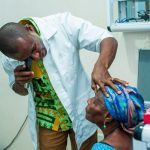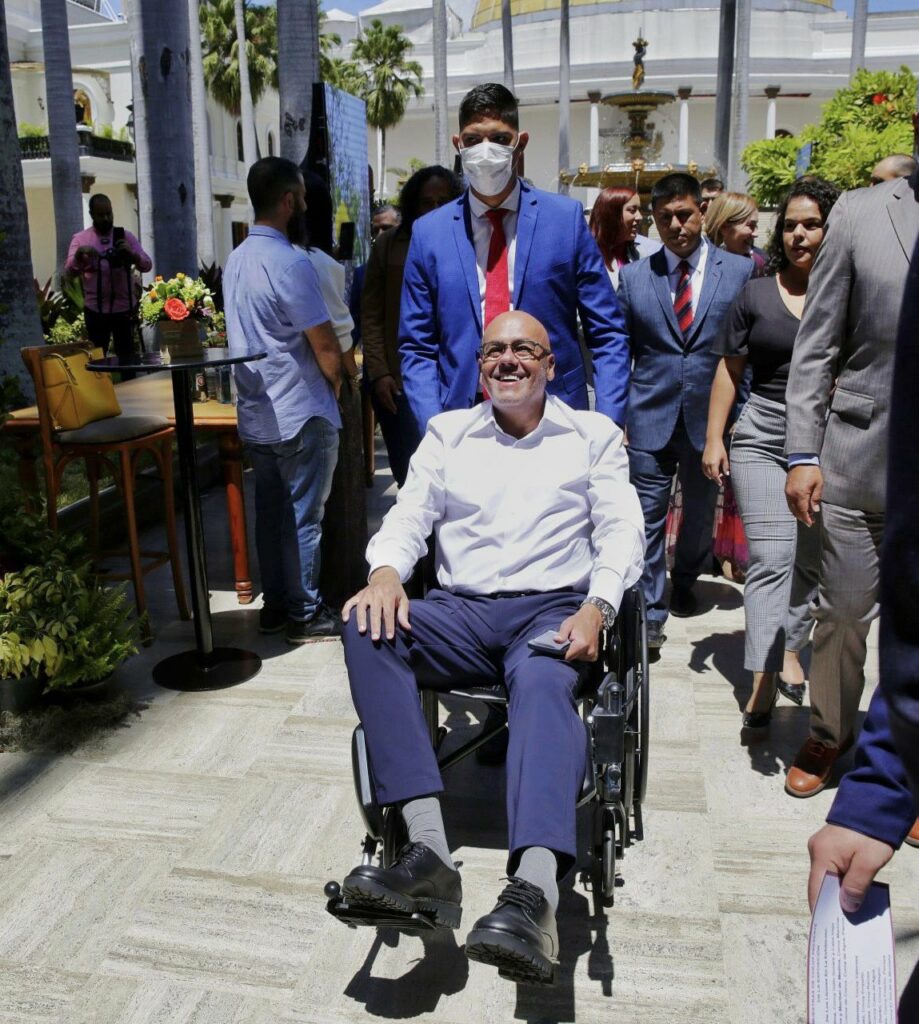After the detection of the first positive case of avian influenza in poultry this week and the self-suspension of exports, the National Agri-Food Health and Quality Service (Senasa) together with the Foreign Ministry are managing the reopening of shipments abroad, and Rodolfo Acerbi, vice president of the organization, estimated that this will take between “90 days and six months.”
Until Friday, Senasa analyzed more than 200 notifications, of which 33 positive cases were detected. Only two -one in Río Negro and another in Buenos Aires- corresponded to birds from the commercial sector, while the rest were wild or backyard animals.
“The dates that one gives, always based on optimism, are between 90 days and six months,” said Senasa vice president Rodolfo Acerbi in an interview with Télam regarding the reopening of exports.
This week, following the international regulations of the OMSA for infectious diseases, Senasa ordered to suspend the export of poultry products after detecting the first positive case
The official and veterinarian indicated that this will depend fundamentally on two factors: the response of the markets and the readjustment of the current contracts; and a scenario under control of the virus.
“A scenario with a disease with few cases or controlled in the field of backyard and wild birds helps much more to accelerate any restoration of exports,” he explained, adding: “It is not the same to have backyard cases every day or talk about a marked epidemic where it will be difficult to negotiate”.
Most of the current contracts – he pointed out – “begin by saying that the country is free of influenza, a condition that we have momentarily lost.”
This week, following international regulations of the World Organization for Animal Health (WHO) for infectious diseases, Senasa ordered to self-suspend the export of poultry products after detecting the first positive case.
Acerbi explained that to recover the status of “disease free” it will require at least two incubation periods (28 days) without cases in commercial birds and other sampling requirements that guarantee the lack of circulation.
Until said certification is achieved again, the country-by-country negotiation will be key to fully or partially resume shipments to the purchasing countries, readjusting the contracts.

One of the ways is to obtain partial sanitary certifications, that is, specific ones for establishments or areas of the country in which the transmission of the virus could be contained, which, in any case, is not spread through the consumption of poultry meat or eggs.
Acerbi indicated that, for example, “some African countries do not require disease-free certificates and request that in the last 90 days the farm has not had problems with infectious diseases and that no cases have been registered within 10 kilometers of them in the last 12 months of influenza”.
“Together with the Foreign Ministry, we are working with all the blocks that buy products from us, especially the South African, Chilean, Chinese and European Union blocks in order to quickly advance new agreements that allow us to export,” he said.
Although it is hoped that the country will recover the status of “free disease”, which is considered an “added value” in a competitive market such as the poultry industry, Acerbi considered that it is “probable” that the virus scenario will return to repeat next year with the new cycle of migratory birds.
“We must be smart and look for a way by which we can give zonal guarantees, for example, farm by farm and 10 kilometers to its surroundings, and explain that there is an active surveillance plan to bring confidence and tranquility to the buying countries,” he said. .

Another axis that Senasa will have will be to start by restoring exports in egg products – especially those that have pasteurization processes.
Japan, a country that had unilaterally suspended imports before the detection of positive cases in commercial birds, announced on Thursday the reopening of these egg products after negotiations between Senasa and the embassy of that country.
“This is the procedure that we are doing with all the countries. Clear the easiest ones, which are the thermal (products) and then see the others,” added the vice president of Senasa.
Beyond what is strictly sanitary, the commercial will also play a role: “If the product is highly demanded and required in the importing country, the authorities always have a different predisposition than if it is not or if it competes with the national production,” he stressed.
“In Southeast Asia, for example, there is interest in chicken claws that are not generally consumed in South America and Argentina. There is strong interest for this product to arrive and we may reach an agreement so that it can quickly be marketed again under certain biosafety guidelines,” Acerbi said.

Argentina exports 17% of its poultry production (in 2022, the country exported US$421 million worth of meat and eggs) with 80% of it destined for China, Saudi Arabia, Europe, South Africa and Chile.
The rest of the production, meanwhile, is destined for the domestic market, which follows the same biosafety requirements as those for exports.
In the case of Chile, Senasa held meetings this Thursday with the Chilean Livestock Agricultural Service (SAG) aiming at the resumption of shipments of poultry products.
In addition, Next week, the regular meeting of the Permanent Veterinary Committee (CVP) will take place in Argentina, where the organization will hold bilateral meetings with the purchasing countries.
“Senasa not only shares the concern of the producers but also redoubles its efforts to end it and give it the possibility to export partially or totally again because most of the leading companies have a percentage (of exports) of between 20% and 40 % that have been developing it for a long time, gaining markets,” emphasized the agency official.
Bird flu: x-ray of the disease
Highly Pathogenic Avian Influenza (HPAI) H5 is a variant that severely affects birds and can cause death.
In the last two years, the disease has spread in Japan and Europe, and among the countries of the American continent, in addition to Argentina, cases have already been detected in Bolivia, Canada, Chile, Colombia, Costa Rica, Cuba, Ecuador, the United States, Guatemala, Honduras, Mexico, Panama, Peru, Venezuela and Uruguay.
The virus is transmitted especially between birds. Infections in humans are less frequent – there were only 868 cases between January 2003 and November 2022 worldwide – and it does not spread easily from person to person, according to the World Health Organization.
However, rigid measures were established in the health and commercial sectors against it since, like all influenza, it can mutate and modify both its danger and its transmissibility.
In the case of humans, in general, the source of contagion is contact with a living or dead sick bird or through surfaces contaminated with saliva, mucosa or bird feces. In no case is it transmitted through the consumption of meat, eggs and their by-products.
According to the recommendations of the Ministry of Health, the fundamental care measures are frequent hand washing with soap and water or the use of alcohol-based disinfectants.
In addition, contact with wild birds should be avoided, especially if they are dead or appear to be sick.
“The symptoms in birds are very simple. Death is one, and others are the inability to fly, isolation because lagoon birds generally live in large groups, and that they do not fly when a man approaches them,” said Rodolfo Acerbi, vice president of Senasa to Télam.
In the case of suspecting these clinical and physiological signs or finding dead birds, Senasa requested to notify the fact by going to any of its offices; through the “Senasa Notifications” application or by sending an email to [email protected].
In the same way, you can enter the “Notify Senasa” section of its website (www.argentina.gob.ar/senasa/formulario-avisa-al-senasa) or send a message to WhatsApp 11-5700-5704.
Senasa faces control and awareness tasks to avoid further transmission
Senasa deployed an extensive control and awareness operation regarding avian influenza, with the aim of restoring commercial exports.
Seeking to curb the transmission of the disease among birds and to prevent its further penetration in the commercial circuit, Senasa deployed control and training operations throughout the country, reinforcing management, hygiene measures among farm producers and biosecurity.
In the case of farms, they are especially asked to limit the access of vehicles and outsiders, isolate birds from other wild ones with anti-bird mesh, control insects and rodents, disinfect the facilities and take care of waste management.
It is also recommended to place elements that contribute to dispel wild birds, such as scarecrows, and, if possible, use exclusive clothing and footwear when working with birds.
Both in the establishments and outside them, it is advisable to avoid having the birds in the wild -leaving them in chicken coops with adequate space-, especially if there are nearby bodies of water.
In recent months, Senasa – indicated Rodolfo Acerbi, vice president of the organization – worked to facilitate the communication of these measures, which are specified in Resolution 1699/2019 of the organization.
“Biosecurity in general is good worldwide, but this virus is extremely aggressive and at any slightest crack, it gains space and enters,” Acerbi explained, stressing that “the virus does not appear out of nowhere but because someone moved it, either by bird or a person with their vehicles, clothing or hands”.
In the case of commercial farms, each one has a veterinarian who is trained by Senasa and “is responsible, together with the farmer, for health and biosafety.”
Given the detection of cases in commercial or backyard birds, in addition to the slaughter of the animals through a regulated burial or incineration, a deep cleaning and disinfection of the entire establishment is carried out. After that, after a month, Senasa carries out a sampling and there it analyzes whether or not to authorize repopulating the place.
In addition to this – Acerbi explained – two rings are set around the farm: a focus area in the three kilometers around it and another surveillance zone in the contiguous 10 kilometers.
In it, a total census of birds and farms is carried out, controlling the traffic of people and vehicles, implementing reinforced biosecurity and cleaning measures and prohibiting the entry of new birds.
Outside the farms, in the case of wild birds, Senasa undertakes coordination work with park rangers and the use of drones, to verify the presence of dead birds floating in the water bodies and on their shores, or of specimens with symptoms such as swelling, incoordination or labored breathing.


















